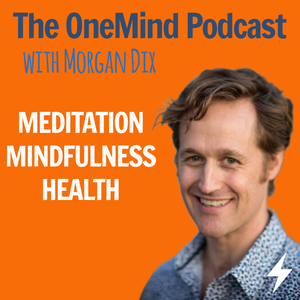
The OneMind Meditation Podcast with Morgan Dix: Meditation | Mindfulness | Health
Morgan Dix | About Meditation
Exploring mindfulness and meditation to help you beat stress, calm your mind and live your best life.
- 1 hour 36 minutesOM106-Noel Coakley on Addiction, Spiritual Bypassing, & The Grace of Mindfulness Meditation
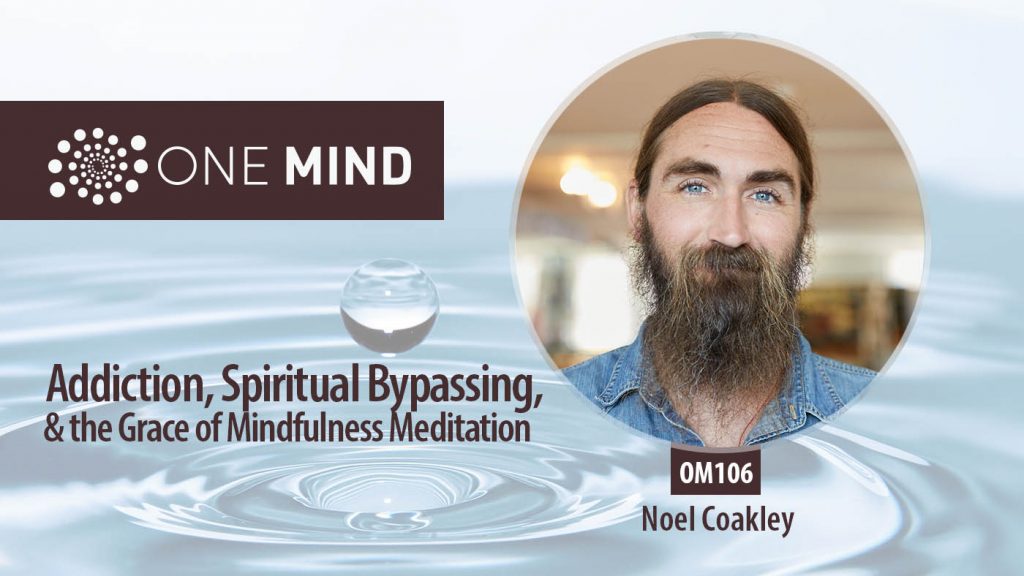
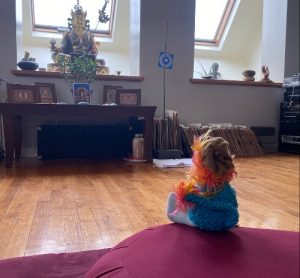 Noel’s meditation buddy
Noel’s meditation buddy
In the latest episode of the One Mind Podcast, I interview my dear friend, Noel Coakley. We cover a wide range of topics including:
- What is spiritual bypassing?
- How do we develop self compassion in the midst of family chaos, raising kids, and constant triggers. How do we find new creative responses to these moments by bringing non-judgmental presence and attention to our own experience?
- We explore the intersection of buddhist psychology and western psychology in theory and practice. How do they compliment each other and what are their unique strengths with respect to our healing, growth, and flourishing.
- How does mindfulness helps us process, metabolize, and compost difficult, challenging, and exiled feelings.
- What is the relationship between mindfulness and addiction recovery?
- From a Buddhist perspective, we discuss the true nature of mind aka buddha nature, bodhicitta, and awakened heart mind.
Noel Coakley is a psychotherapist, meditation teacher, and former elementary school special educator. He has studied Tibetan Buddhism since 1997 and the Bön tradition since 2013. He is a father, husband, and friend to a dog named Clementine. Noel is the director of the Boston Center for Contemplative Practice (thebccp.com) and an assistant director at Dharma Moon (dharmamoon.com). Noel is dedicated to the accessibility of the dharma and its application in modern culture.
Connect With Noel
IG: @wakeupsleepybuddha web: www.thebccp.com direct email for 1:1 instruction or therapy: [email protected]The post OM106-Noel Coakley on Addiction, Spiritual Bypassing, & The Grace of Mindfulness Meditation appeared first on About Meditation.
30 January 2023, 4:32 am - 1 hour 10 minutesOM105 – Mindset, Meditation, and Flow States with Vedran Peric
Show Notes
- Leap X Consulting
- The Flow Research Collective
- The Art of Impossible by Steven Kotler
- Stealing Fire by Steven Kotler
- The Rise of Superman by Steven Kotler
The post OM105 – Mindset, Meditation, and Flow States with Vedran Peric appeared first on About Meditation.
4 November 2022, 5:58 pm - 28 minutes 19 secondsOM104 – On a Mahamudra Meditation Retreat with Vajrayana Master Daniel P. Brown, PhD
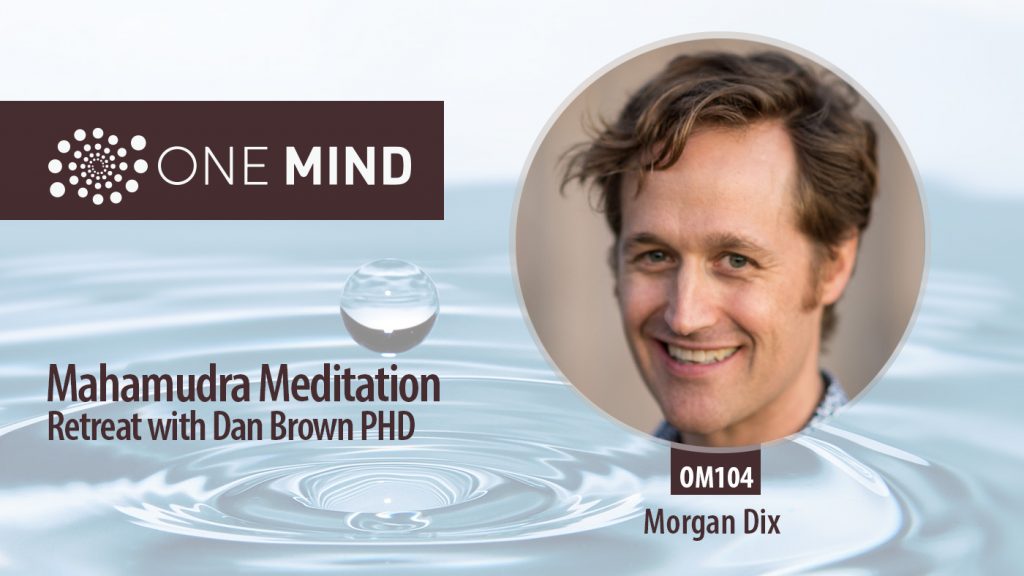
In early 2020, before any of us had heard anything about a lethal virus emerging from Wuhan Province, China, I attended a life changing 8-day Mahamudra meditation retreat with Harvard neuropsychologist and Vajrayana master Daniel P. Brown PHd.
After a nine year pause on spiritual retreats, this was my first extended in-person retreat with a living teacher.
I did also attend a 10-day silent Vipassana Retreat in summer 2019, but that was accompanied by recordings from S.N. Goenka. That was a powerful experience in its own right, but we weren’t receiving teachings from a living, breathing, responsive human being.
It’s a totally different thing and, in my experience, they don’t really compare.
I am no stranger to retreats. In my years living at the ashram, I did countless 10 and 21-day silent meditation retreats. Some directly guided by my teacher, and others completely solo.
I know how powerful they can be.
And this experience was no exception. In fact, it was healing and heart opening in ways I couldn’t have anticipated.
In this episode, I share my experience of going on a Mahamudra meditation retreat with Daniel P. Brown.
I encourage you to pair this podcast with my interview with Dan Brown and his former student, John Churchill. All three links are listed below.
Show Notes:
- OM098 Pt 1. Dan Brown PhD Mahamudra Pointing Out The Great Way
- OM099 Pt 2. Dr. Dan Brown Mahamudra Pointing Out The Great Way
- OM075: John Churchill on Mahamudra Meditation & A Vision For Enlightened Culture
- https://pointingoutway.org/
The post OM104 – On a Mahamudra Meditation Retreat with Vajrayana Master Daniel P. Brown, PhD appeared first on About Meditation.
18 February 2021, 10:15 pm - 1 hour 5 minutesOM103 - Sanjay Rawal On Meditation, Running, and Self Transcendence
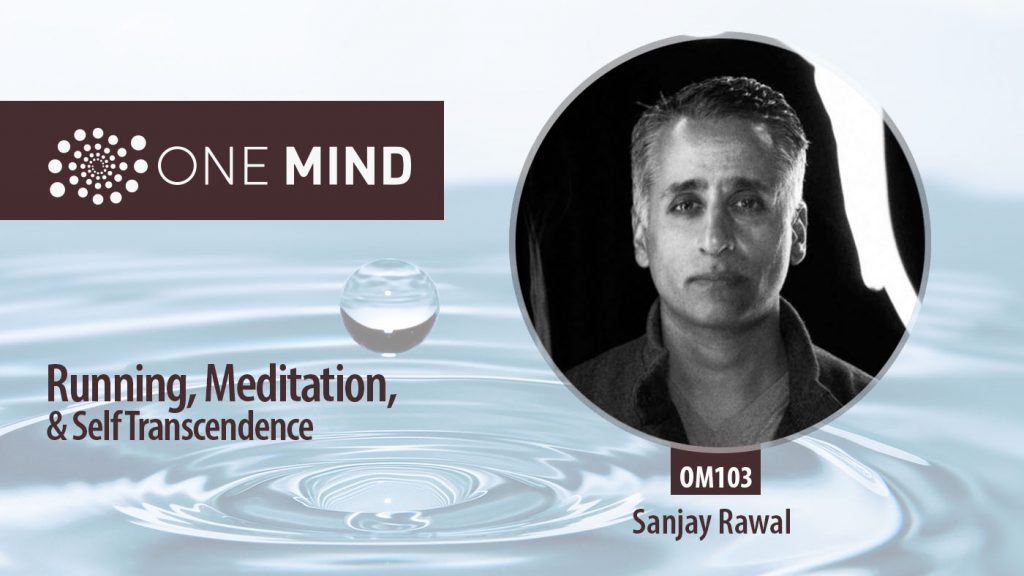
In this episode, filmmaker Sanjay Rawal and I explore our shared experience with Sri Chimnoy (my first spiritual teacher) and discover–to our shared surprise–that we joined Sri Chimnoy's community around the same time and attended some of the same events.
We explore the inspiring work of Sri Chimnoy and his extraordinary and hugely influential teacher, Sri Aurobindo.
Then we dive into Sanjay's movie about the remarkable 3100 miles ultra marathon that his spiritual community hosts each year.
Sanjay's film is a meditation on the power of running as a vehicle for self transcendence. The footage is glorious, immersive, and hypnotic.
If you’re interested in running and meditation and pushing your own limits, this is essential watching. If you're a dedicated runner or meditator, you will get a lot out of this film since Sanjay explores the intersection of these two disciplines in our conversation and in the movie.
I enjoyed this conversation immensely. Sanjay is a fount of knowledge about all things meditation and running.
BIOGRAPHY
Sanjay Rawal worked in the human rights and international development sectors for 15 years in over 40 countries before focusing his love for photography and storytelling onto filmmaking.
His first feature, Food Chains (2014), premiered at the 2014 Berlinale and screened at Tribeca before securing domestic distribution from Screen Media. The film was produced by Eva Longoria and Eric Schlosser and narrated by Forest Whitaker. It went on to screen in 1,100 more theaters during its theatrical, semi-theatrical & community screening tour.
A lifelong runner, Sanjay was happy to lose the pounds he gained eating Mexican food in farmworker towns and take on a project about running. His latest film, 3100: Run and Become, opened in theaters in fall 2018.
DAILY MEDITATION FOR 27 YEARS
Sanjay Rawal walks his talk. He's had a daily meditation practice for 27 years, was a middle-distance runner in high-school and college, and runs an average of 50 miles per week. He pulled off filming 3100 where no one else could because spiritual practitioners around the world recognized that Sanjay embodied a level of discipline akin to theirs.
He learned his meditation practice at the feet of spiritual master.
SHOW NOTES
Watch the Official Trailer for 3100 here.
Visit the 3100: Run And Become homepage to learn more & find a screening in your area.
Event: The Sri Chinmoy Self-Transcendence 3100 Mile Race
The post OM103 – Filmmaker Sanjay Rawal On Meditation, Running, and Self Transcendence appeared first on About Meditation.
19 December 2020, 11:52 pm - 51 minutes 9 secondsOM102: Julie Hunt On Finding Equanimity Amid Uncertainty

In this episode, Julie and Morgan discuss the part of you and I that is forever untouched by the chaos and disruption of this crisis.
We explore that limitless part of the self and how it can serve as a powerful point of calm grounding in the storm of our lives in this historical moment.
Then Julie leads us on a powerful guided meditation and then we take questions.
You can learn more about Julie’s work at Bija Living here.
>> Guided Meditation Only (coming soon)
Watch the original interview and guided meditation in the video below.
The post OM102: Julie Hunt On Finding Equanimity Amid Uncertainty appeared first on About Meditation.
14 October 2020, 3:43 am - 1 hour 3 minutesOM101 – Jeff Carreira on Finding Equanimity Amid Uncertainty
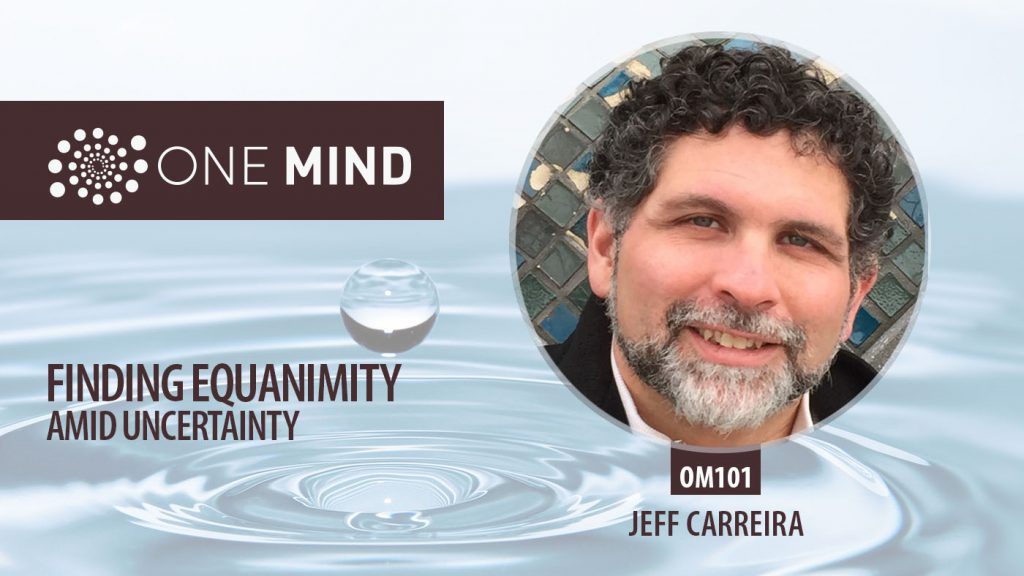
In this episode, I interview my former mentor and spiritual teacher Jeff Carreira.
Jeff and I lived, worked, and practiced in an intentional spiritual community together for 13 years in Western Massachusetts. Jeff was not only a spiritual mentor to me during that time, but he was also my boss.
Jeff was the Director of our educational programming, and I was his program manager. Together, Jeff and I built a thriving program of retreats and virtual courses.
And in a strict ashram with a hard teacher, Jeff provided an oasis of ease and compassionate presence. Jeff helped me, and many others, through many a rough patch.
Today, Jeff leads his own retreats, courses, and teacher trainings over at JeffCarreira.com.
Find Equanimity Amid Uncertainty
So I was delighted to reconnect with him during this Zoom interview with a live audience. I spoke with Jeff at the outset of the pandemic in March as part of a series called Finding Equanimity Amid Uncertainty. And as always, he was intent on communicating a message of positivity and possibility.
Then, he led us all through a powerful guided meditation and answered questions.
I encourage to take the time to listen to this whole episode. Set aside an hour and find a quiet place to listen. You’ll get a heavy dose of Jeff’s infectious optimism followed by a deep transmission of peace, ease, and fundamental well being.
Free Resources from Jeff Carreira
If you want to learn more about Jeff’s work or engage with him directly, here are some resources for you:
- Life Without Fear: Meditation as an Antidote to Anxiety – Free Workshop Audio
- Secrets of Profound Meditation: 6 Spiritual Insights That Will Transform Your Life
The post OM101 – Jeff Carreira on Finding Equanimity Amid Uncertainty appeared first on About Meditation.
7 August 2020, 3:37 am - 16 minutes 5 secondsOM100: Loving Kindness Guided Meditation
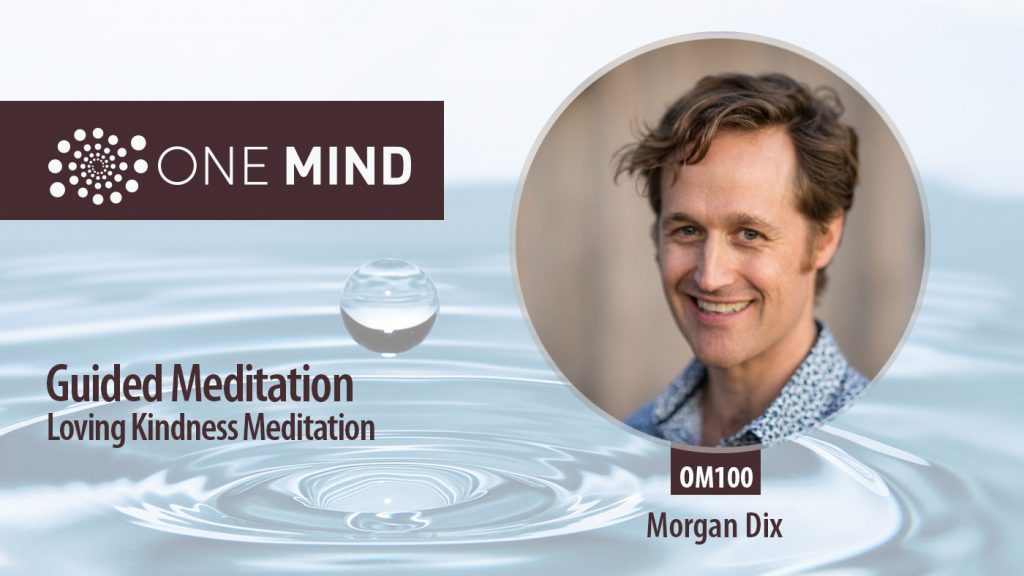
(The script for this guided meditation comes from Tom Lynch, PHD at http://RadicallyOpen.net.)
When times are tough, sometimes the best way to clear your head and open your heart is to focus on other people.
So in that spirit, I’ve recorded a Loving Kindness Meditation for you. I think we could all use a little extra love right now. Love for ourselves and love for each other and love for those folks on the front lines of the viral pandemic that’s sweeping across the planet right now.
And you know what? I think we’re going to need a lot more of it by the time all of this is over. So please take some time, get quiet, and send love out to those people who need it most.
In the process, you’re likely to discover, if you haven’t already, that it feels good and right to share the love. And it’s a marvelous way to counteract the fear and anxiety that’s in the air.
Let’s generate some love people.
The post OM100: Loving Kindness Guided Meditation appeared first on About Meditation.
22 March 2020, 4:13 am - 1 hour 6 minutesOM099 – Pt 2. Dr. Dan Brown Mahamudra Pointing Out The Great Way
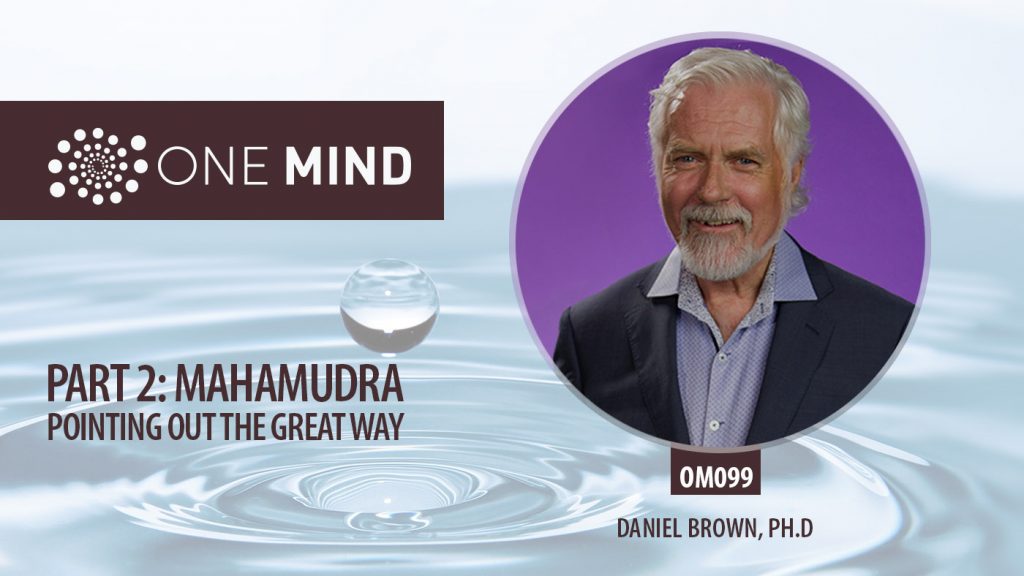
In this second part of my interview with Dr. Daniel P. Brown, we explore the second stage of training in Mahamudra Pointing Out The Great Way.
In part 1, we explored the Elephant Path of concentration and meditation, which is the first stage of training in Mahamudra Pointing Out The Great Way.
Special Offer for One Mind Listeners
Dan Brown is making his peak performance meditation and concentration self-paced online course available to One Mind Listeners a special 25% discount. Your purchase will also support the production of this podcast.
Use the promo code ABOUTAPRIL20 at checkout to receive the special discount during the month of April.
>> Special Discount For Dan Brown’s Online Concentration and Meditation Peak Performance Training
Part 2 – The Neuroscience of Awakening
In this episode, Dan talks about the how the Elephant Path of concentration crosses over into the Tibetan mahamudra training. Here are a few of the questions we explore:
- What are the challenges that emerge at the higher stages of concentration and meditation and how do you deal with the issues that come up and challenge our concentration?
- Development of self-sense as central organizing principle
- The Heart Sutra
- Judson Brewer’s work on the Neuroscience of Awakening supported by the Fetzer Foundation.
- What is simultaneous mind and the cosmic database. These are the awakened state that the sutras are written in.
- How do we tap into the Cosmic Database?
- What Is Mind only and what does it stand for?
- What are the three maps of awareness according to Mahamudra?
- What transformation has Dan seen in his students over time? Along what timeline?
- What is metacognition and why is it so important? How does metacognition help you to avoid getting lost in meditation? How does the teacher help create that space of metacognition for the student in the pointing out way?
- How does metacognition relate to Western psychology?
Short Bio
Dan is an Associate Clinical Professor at Harvard Medical School, a world-renowned Forensic Law & Western psychology expert as well as a Senior Meditation Master in Indo-Tibetan Bon & Buddhism.
Dan has gained more than 50 years of research by synthesizing Western psychotherapy and positive psychology with Eastern contemplative traditions.
Long Bio
Dr. Brown studied meditation practice for 47 years, including Patanjali's Yogasutras and its commentaries in the original Sanskrit with the great historian of religion, Mircea Eliade and as a direct meditation practice with Dr. Arwind Vasavada. He studied Burmese mindfulness meditation in Burma with its originator, Mahasi Sayadaw and other masters like Tungpalu Sayadaw and Acchan Cha.
He studied Indo-Tibetan concentration and insight meditation with the root teacher, Geshe Wangyal, and then with Denmo Loncho Rinpoche and Yeshe Tapgyay, and learned Mahamudra meditation from numerous Tibetan lamas. He spent 46 years translating meditation texts from Tibetan and Sanskrit .
As a Western psychologist he spent 10 years conducting outcomes research on beginning and advanced meditators, with an emphasis on researching the effects of intensive concentration meditation and on the nature of the awakened mind. He has taught intensive meditation retreats internationally for 32 years, alone and in collaboration with a number of Tibetan meditation masters.
His recent interest is in meditations designed to stabilize awakening in everyday life and to bring about the flourishing of positive qualities of mind, such as the Great Completion (Dzogschen) meditations.
He is the author of 4 books on meditation including Transformations of Consciousness and Pointing Out the Great Way. He translated the Pith Instructions on the A Khrid rDzogs Chen [Great Completion] meditation, and an extensive collection of the most advanced cave and hermitage yogi practices, The Self-Arising Three-fold Embodiment of Enlightenment.
Dr. Brown's background in both Western psychology and Eastern meditation traditions offers a unique integration of the contemporary Western research on peak performance and positive psychology and the classical Buddhist meditation lineage traditions. He has the only scientific study identifying the neurocircuitry of the meditative experience of awakened mind.
The post OM099 – Pt 2. Dr. Dan Brown Mahamudra Pointing Out The Great Way appeared first on About Meditation.
16 February 2020, 4:01 pm - 36 minutes 57 secondsOM098 – Pt 1. Dan Brown PhD Mahamudra Pointing Out The Great Way
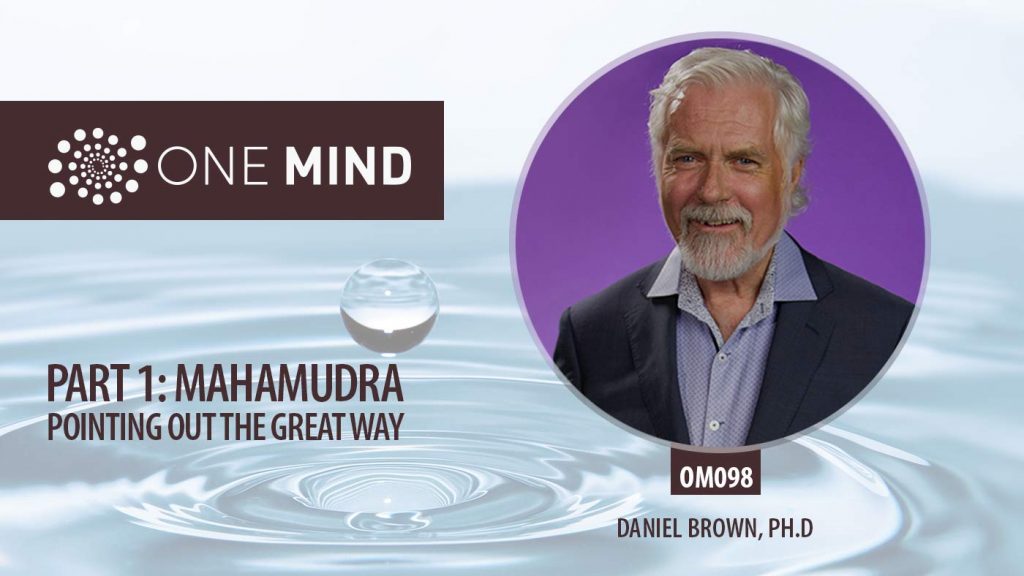 In this first part of my interview with Daniel P. Brown, we explore the first stage of training in Mahamudra Pointing Out The Great Way called the Elephant Path of concentration, meditation, and peak performance.
In this first part of my interview with Daniel P. Brown, we explore the first stage of training in Mahamudra Pointing Out The Great Way called the Elephant Path of concentration, meditation, and peak performance.In part 2, we explore the second stage of training in Mahamudra Pointing Out The Great Way.
Special Offer for One Mind Listeners:
Also, Dan Brown is making his peak performance meditation and concentration self-paced online course available to One Mind Listeners a special 25% discount. Your purchase will also support the production of this podcast.
Use the promo code ABOUTAPRIL20 at checkout to receive the special discount during the month of April.
>> Special Discount For Dan Brown's Online Concentration and Meditation Peak Performance Training
Short Bio
Dan is an Associate Clinical Professor at Harvard Medical School, a world-renowned Forensic Law & Western psychology expert as well as a Senior Meditation Master in Indo-Tibetan Bon & Buddhism.
Dan has gained more than 50 years of research by synthesizing Western psychotherapy and positive psychology with Eastern contemplative traditions.
Long Bio
Dr. Brown received his undergraduate degree at the University of Massachusetts, Amherst MA in molecular biology and his Ph.D. in Religion & Psychological Studies at the University of Chicago. He received a Danforth Fellowship given for promise in teaching excellence, and as part of that fellowship received specialized training in how to teach. While in graduate school he was particularly interested in interdisciplinary studies. At the University of Chicago he worked in religion & psychological studies, the history of religions, anthropology, human development and clinical psychology. Erika Fromm, Ph.D. a noted hypnoanalyst, served as his primary clinical mentor a relationship that spanned 35 years. Dr. Brown has taught hypnotherapy for 38 years. His books on hypnosis include a standard textbook on clinical hypnosis, Hypnotherapy and Hypnoanalysis (with E. Fromm), Hypnosis and Behavioral Medicine (with E. Fromm), and Creative Mastery in Hypnosis and Hypnoanalysis, on the permissive style of hypnotherapy. While in graduate school in Chicago he commuted to the University of Wisconsin, Madison for part time studies in the Buddhist studies program, where he learned Tibetan, Buddhist Sanskrit, and Pali.
His first clinical placement as a psychological clerk was at Michael Reese Hospital in Chicago where he studied thought disorder in schizophrenics with Martin Harrow and self psychology with Heinz Kohut. He also commuted part time to The Menninger Foundation in Topeka Kansas where he did work with the staff of the children and adolescent units on the treatment of substance abuse. There, Karl Menninger, M.D. served as an important mentor. In the late 1970s he moved back to his home state of Massachusetts where he did a clinical internship at McLean Hospital and a Post-Doctoral Fellowship in Clinical Research at Harvard Medical School at The Cambridge Hospital. His research focused on the long-term effects of mindfulness meditation.
In the 1980s Dr. Brown served as Director of Training and then as Chief Psychologist at The Cambridge Hospital. There, he helped develop and gain accreditation for an APA-approved clinical psychology internship and post-doctoral training program. His vision was to provide the best young talent in psychology the opportunity to work with a disenfranchised inner city chronic mental health population, which included intensive developmentally-informed psychotherapy for patients with major mental illness and complex trauma disorders. His program included intensive multicultural and bilingual mental health training. At the Cambridge Hospital he developed and directed the Behavioral Medicine Program, a joint venture between psychiatry and primary care medicine. His book Hypnosis and Behavioral Medicine represents the clinical approaches developed in that program. Drawing upon his undergraduate background in molecular biology and immunology he developed a special interest in psychoneuroimmunology and the psychosocial treatment of immune disorders. He developed a joint exchange between the Beijing College of Traditional Chinese Medicine and The Cambridge Hospital for dissemination of research findings on approaches to treating immune-related disorders in TCM and behavioral medicine.
Since 1990 Dr. Brown has devoted much of his time to clinical teaching. He has taught in the Division of Continuing Education of Harvard Medical School at Massachusetts Mental Health Center/Beth Israel-Deaconnes Medical Center. There he teaches seminars on hypnosis, trauma, treatment of attachment pathology, and peak performance. Since 1990 he has taught a course on Performance Excellence, one version for primary care doctors and surgeons, one version for judges, and one version for business executives. Currently, Dr. Brown is an Associate Clinical Professor in Psychology at Harvard Medical School. He has served on the Harvard Medical School faculty for 37 years. Dr. Brown also directs his own private continuing education organization wherein he teaches a wide variety of seminars in the mental health field locally, nationally, and internationally. He tries to stay abreast of the latest scientific development in assessment and treatment in mental health and translate these findings into clinical teaching to offer clinicians practical, state-of-the-art clinical methods and as way of continuously upgrade their standard of care. He is the senior author of a major textbook on the treatment of attachment disorders in adults, D Brown & D Elliott, Attachment Disturbances in Adults.
In the late 1970s Dr. Brown became interested in the study of trauma and abuse largely through peer collaboration with Sarah Haley, one of the founding members of the International Society for the Study of Traumatic Stress. Most of his clinical writing and teaching from the 1980s and 1990s focuses on refining phase-oriented treatment for complex trauma disorders. In the 1980s Dr. Brown began to study the development of the psychological sense of self and emotional development. He has written two books on developmental psychopathology a book on affect development, Human Feelings, and a book on self development from a cross cultural perspective, Transformations of Consciousness.His main interest was in developing detailed developmentally-informed treatment protocols for treating self pathology and affect dysregulation in patients. In the 2000s Dr. Brown began to study adult attachment and received intensive training in the Adult Attachment Interview. His more recent research focuses on the relative contribution of early attachment pathology to the development of personality and dissociative disorders in adulthood. His current orphanage study delineates the differential contribution of early attachment pathology and later childhood abuse to adult psychopathology. Dr. Brown has been developing a step-wise treatment protocol for the treatment of adult attachment pathology in personality and dissociative disorder patients and is collecting outcome data on this new treatment approach.
In the early 1990s Dr. Brown became interested in the topic of memory for trauma and abuse. His textbook, Memory, Trauma Treatment and the Law is the recipient of awards from 7 professional societies, including the 1999 Manfred S. Guttmacher Award given jointly by the American Psychiatric Association and the American Academy of Psychiatry and Law for the outstanding contribution to forensic psychiatry. He was invited to write the chapter on the current standard of forensic psychological testing for the current textbook on forensic psychiatry published by the American Psychiatric Association. He has served as an expert witness in the courts in over two hundred lawsuits: psychological damages from trauma and abuse; memory for trauma; reliability of childrens' reports of abuse; and evaluating claims of suggestive psychotherapy interviews, abuse investigative interviews, and police interrogations. His work as an expert witness or consultant on trauma and memory has included testimony before of International War Crimes Tribunal for the Prosecution of war criminals of the former Yugoslavia. His testimony, upheld on appeal, helped establish the standard of evidence for evaluating the reliability of memory for severe war atrocities. His testimony also contributed to three state supreme court cases on the reliability of children's testimony regarding sexual abuse.
Dr. Brown studied meditation practice for 47 years, including Patanjali's Yogasutras and its commentaries in the original Sanskrit with the great historian of religion, Mircea Eliade and as a direct meditation practice with Dr. Arwind Vasavada. He studied Burmese mindfulness meditation in Burma with its originator, Mahasi Sayadaw and other masters like Tungpalu Sayadaw and Acchan Cha. He studied Indo-Tibetan concentration and insight meditation with the root teacher, Geshe Wangyal, and then with Denmo Loncho Rinpoche and Yeshe Tapgyay, and learned Mahamudra meditation from numerous Tibetan lamas. He spent 46 years translating meditation texts from Tibetan and Sanskrit . As a Western psychologist he spent 10 years conducting outcomes research on beginning and advanced meditators, with an emphasis on researching the effects of intensive concentration meditation and on the nature of the awakened mind. He has taught intensive meditation retreats internationally for 32 years, alone and in collaboration with a number of Tibetan meditation masters. His recent interest is in meditations designed to stabilize awakening in everyday life and to bring about the flourishing of positive qualities of mind, such as the Great Completion (Dzogschen) meditations. He is the author of 4 books on meditation including Transformations of Consciousness and Pointing Out the Great Way. He translated the Pith Instructions on the A Khrid rDzogs Chen
[Great Completion]
meditation, and an extensive collection of the most advanced cave and hermitage yogi practices, The Self-Arising Three-fold Embodiment of Enlightenment. Dr. Brown's background in both Western psychology and Eastern meditation traditions offers a unique integration of the contemporary Western research on peak performance and positive psychology and the classical Buddhist meditation lineage traditions. He has the only scientific study identifying the neurocircuitry of the meditative experience of awakened mind.
The post OM098 – Pt 1. Dan Brown PhD Mahamudra Pointing Out The Great Way appeared first on About Meditation.
9 February 2020, 4:01 pm - 1 hour 13 minutesOM097 - The Mindful Arts Project with Hui Neng Amos
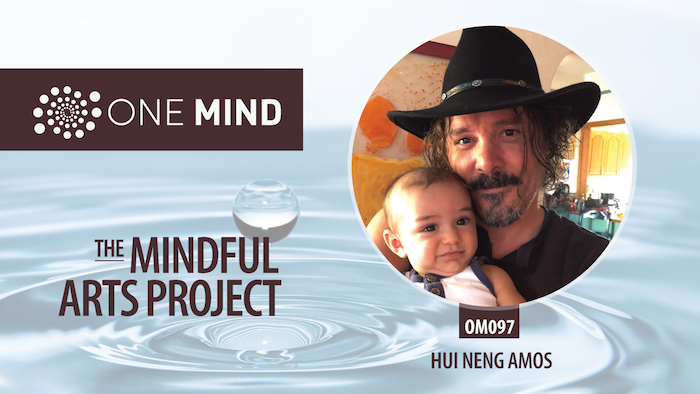 Over 25 years ago, I attended boarding school and got to live, work, and study with some remarkable people. One of those people was a classmate named Hui Neng Amos.
Over 25 years ago, I attended boarding school and got to live, work, and study with some remarkable people. One of those people was a classmate named Hui Neng Amos.Neng was one of my dorm prefects. And in addition to being a generally kind and easy going guy, Neng practiced this strange and to my provincial mind mysterious thing called Tai Chi.
All I knew about it was that it appeared to give Neng preternatural powers of grace and power on the athletic field.
At the time, it didn't occur to me that in part, it probably explained his poise off the field too.
Many years later, when I became interested in the meditative arts, I started to learn about a form of moving meditation called Tai Chi. In my mind, I always associated this ancient form of meditation with my old classmate.
So I was delighted when a few years ago, Neng and I reconnected via Facebook. I was intrigued to see that he had created something called the Mindful Arts Project.
In this episode, we explore Hui Neng's story, about how he grew up in a small rural New Hampshire school cum intentional community where he started learning and practicing tai chi and seated meditation from the wee age of three.
After college, his travels took him across America to India and more. Neng would journey away from his roots in contemplative practice, only to return as an adult, more committed than ever and now teaching these sacred practices through the Mindful Arts Project.
But there is much more to this story, as you'll learn.
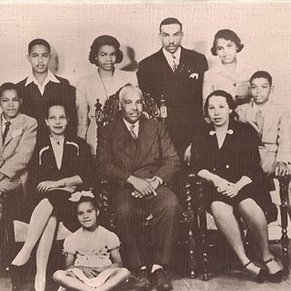 Albert Amos (Center in chair); Hui Neng’s Father (top left)
Albert Amos (Center in chair); Hui Neng’s Father (top left)
During the interview, Neng takes us back to the time of his grandfather, Albert Amos, who was a close friend of the great civil rights luminary Howard Thurman, and a deacon in his church.
Thurman was one of the first major champions of Gandhi's nonviolent principles in the West, imparting those powerful tenets of peaceful resistance to Martin Luther King.
Albert Amos himself was a socialist organizer in the black Bay Area community. And as Neng says it:
Our family was certainly steeped in the ideas that Howard Thurman espoused; a sizable group of black intellectuals shared in their inception, and the Civil Rights Movement was arguably built there (in the Bay Area), outside the grasp of the Deep South, where it was famously applied. He was an extraordinary human being, and I certainly count him as a forefather.
Indeed, Thurman was the reason Neng's father got to go to college. Thurman put in a word for him at U.C. San Francisco, where he was very successful. Hui Neng's father then went on to continue his studies in economics at U.C. Berkeley.
But the extraordinary intersections in Neng's family don't stop with Thurman. Throughout the '60s, Neng's father was a student of the great Zen Master Shunryu Suzuki, founder of the San Francisco Zen Center and the Tassajara Monastery.
Today, in addition to running the Mindful Arts Project, Neng teaches English at the Basis School in Ahwatukee, AZ. He's married to Sonya Amos and has seven kids aged 5 months to 17 years. He teaches tai chi and his wife practices Buti yoga. Neng likes to sing and paint and tell dad jokes.(-:
The post OM097: The Mindful Arts Project with Hui Neng Amos appeared first on About Meditation.
19 November 2019, 4:31 pm - 25 minutes 56 secondsOM096 Harnessing The Power of Intention & Creating A Virtuous Habit Loop
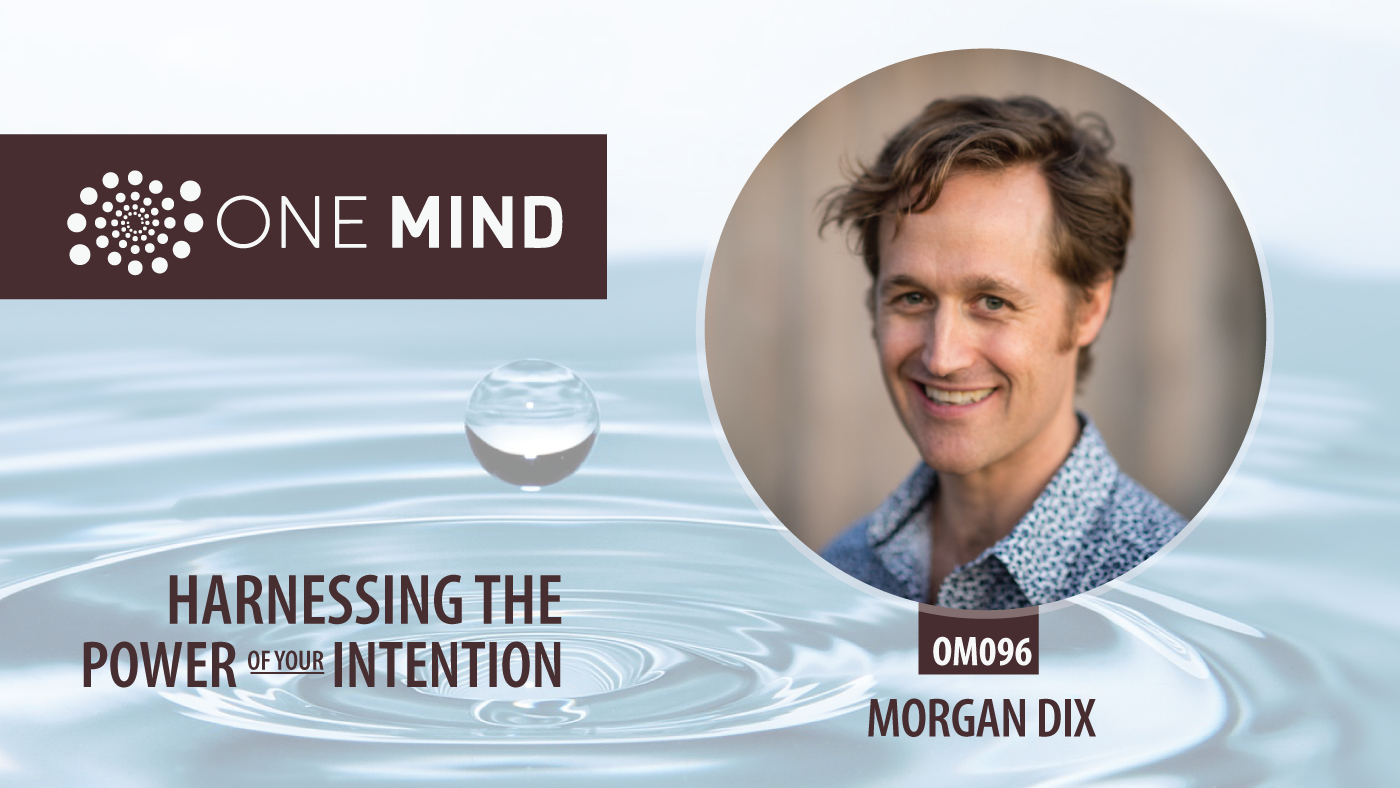
What is intention and why is it one of the most important pillars of meditation and our spiritual life in general?
Two events brought this to mind for me recently and they were important enough to me that I wanted to share them.
And for context, I've thought a lot about intention. When I lived full time in a meditation ashram for 13 years, the bedrock of our practice in the context of the spiritual teaching we followed was Clarity of Intention: “Do I want to be free more than anything else?”
What Is Intention?
So I have a few simple things I want share on the topic of intention for sure. But first, let’s take a quick look at the definition.
intention (n.)
late 14c., entencioun, “purpose, design, aim or object; will, wish, desire, that which is intended,” from Old French entencion “intent, purpose, aspiration; will; thought” (12c.), from Latin intentionem (nominative intentio) “a stretching out, straining, exertion, effort; attention,” noun of action from intendere “to turn one’s attention,” literally “to stretch out” (see intend). Also in Middle English “emotion, feelings; heart, mind, mental faculties, understanding. -Etymology Online
And now, why did this topic come to my attention?
Intention Creates A Virtuous Loop
First, a member of the aboutmeditation.com community recently commented on the importance of intention in his practice and how, when he doesn't focus on and nourish his intention, his meditation practice falls apart. He wrote:
For me, it's all about intentionality and discipline. I have to be intentional in my practice and I can't take long breaks away from it. When I'm disciplined, I look forward to the next practice. When I start giving myself outs , then things fall apart and I feel less inclined to keep doing it. And when that happens, I start falling apart in other areas of my life. So I'm mindful of the snowball effect!
When it comes to intention, I thought this was spot on. Before anything, you have to ask yourself, what's most important to me. Why am I doing this?
For example, I meditate now because I know that it affects every part of my life. And that's implicit in his words too.
He knows that when he's consistent, he's entering into a virtuous loop where practice begets more practice. Everytime he meditates, he wants to meditate more.
Inspiration begets more inspiration and all the while, your motivation is deepening and your momentum is growing, and little by little, inch by inch, you are changing.
Little by little, you’re nurturing your connection to the infinite.
And conversely, when you miss a few days, it becomes harder to meditate and to feel motivated. You lose touch with why it was so important. You lose touch with that. And then you give yourself outs.
Here's a personal example from my own life.
Meditation helps me to be more patient across the board. That makes a really big difference when my little girl, as we're trying to get out the door for school, is refusing to put on the Minnie Mouse shirt she just made me spend 10 minutes looking for.
But she won't consider wearing anything else. That’s patience is really important.
It gives me a beat to make a creative slight of hand to divert her before my blood starts to rise. In those moments, an extra shot of patience can make all the difference.
Intention Dispels Confusion
And that game-changing patience? It all started with my intention to meditate earlier that day.
For me, I gained a deep understanding of the power and importance of intention when I lived in a spiritual meditation ashram for 13 years.
At the ashram, we adhered to a rigorous schedule of spiritual practice. The goal, according to our teacher, was enlightenment or spiritual freedom.
For me, intention had everything to do with cutting through confusion and inner challenges. When I felt divided, when I questioned my motivations, when I was confused, or even if I just felt like somehow I wasn't living my fullest or best self, I came back to the first tenet of our teaching, clarity of intention.
And in that context, it meant wanting to be free more than anything else. Wanting to align myself and my momentary purpose in this instant right now, with my deepest experience of reality and to be true to that.
This never failed to help me penetrate my confusion or malaise and find direction and contentment.
Knowing what is most important to you in a given context is like a superpower. It gives you clarity, direction, purpose. And that does amazing things for you.
It gives you confidence but it also helps you give confidence to others.
So…take a few moments every day and reflect on your intention. Why are you meditating? Why is it important to you?
The more clarity you gain around this question, the more confidence you’ll start to generate in and through your meditation practice.
The post OM096 Harnessing The Power of Intention & Creating A Virtuous Habit Loop appeared first on About Meditation.
28 October 2019, 9:01 pm - More Episodes? Get the App
Your feedback is valuable to us. Should you encounter any bugs, glitches, lack of functionality or other problems, please email us on [email protected] or join Moon.FM Telegram Group where you can talk directly to the dev team who are happy to answer any queries.
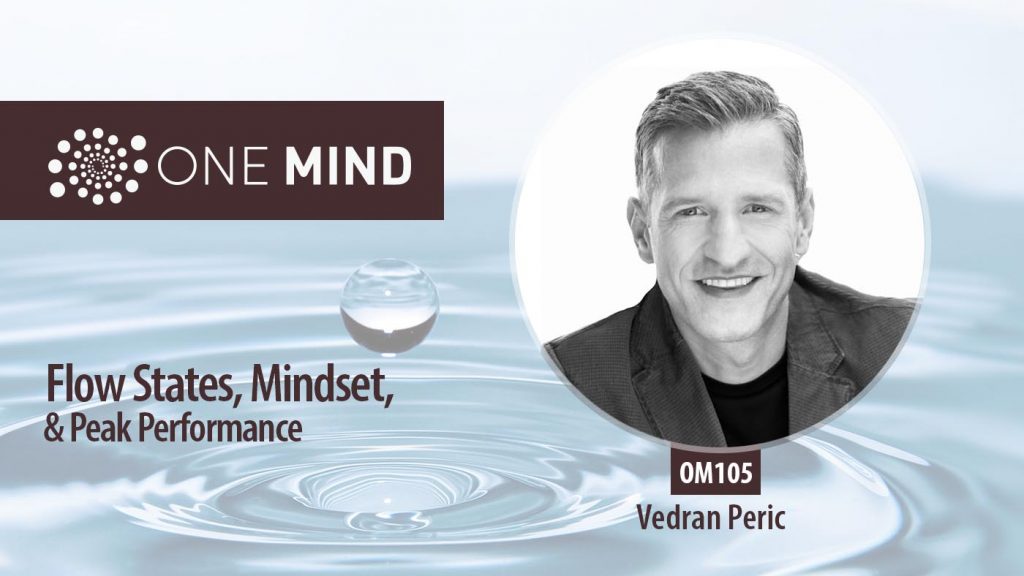
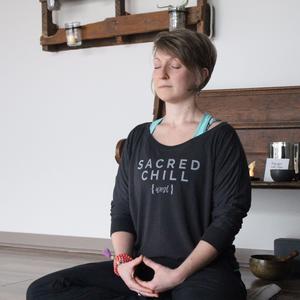 The Mindful Minute
The Mindful Minute
 Mindful In Minutes Meditation
Mindful In Minutes Meditation
 Feel Better, Live More with Dr Rangan Chatterjee
Feel Better, Live More with Dr Rangan Chatterjee
 Poetry Unbound
Poetry Unbound
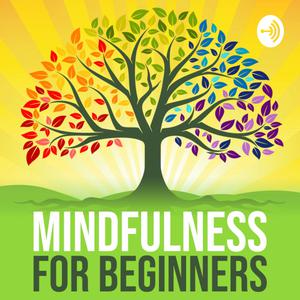 Mindfulness For Beginners
Mindfulness For Beginners
 Buddha at the Gas Pump
Buddha at the Gas Pump